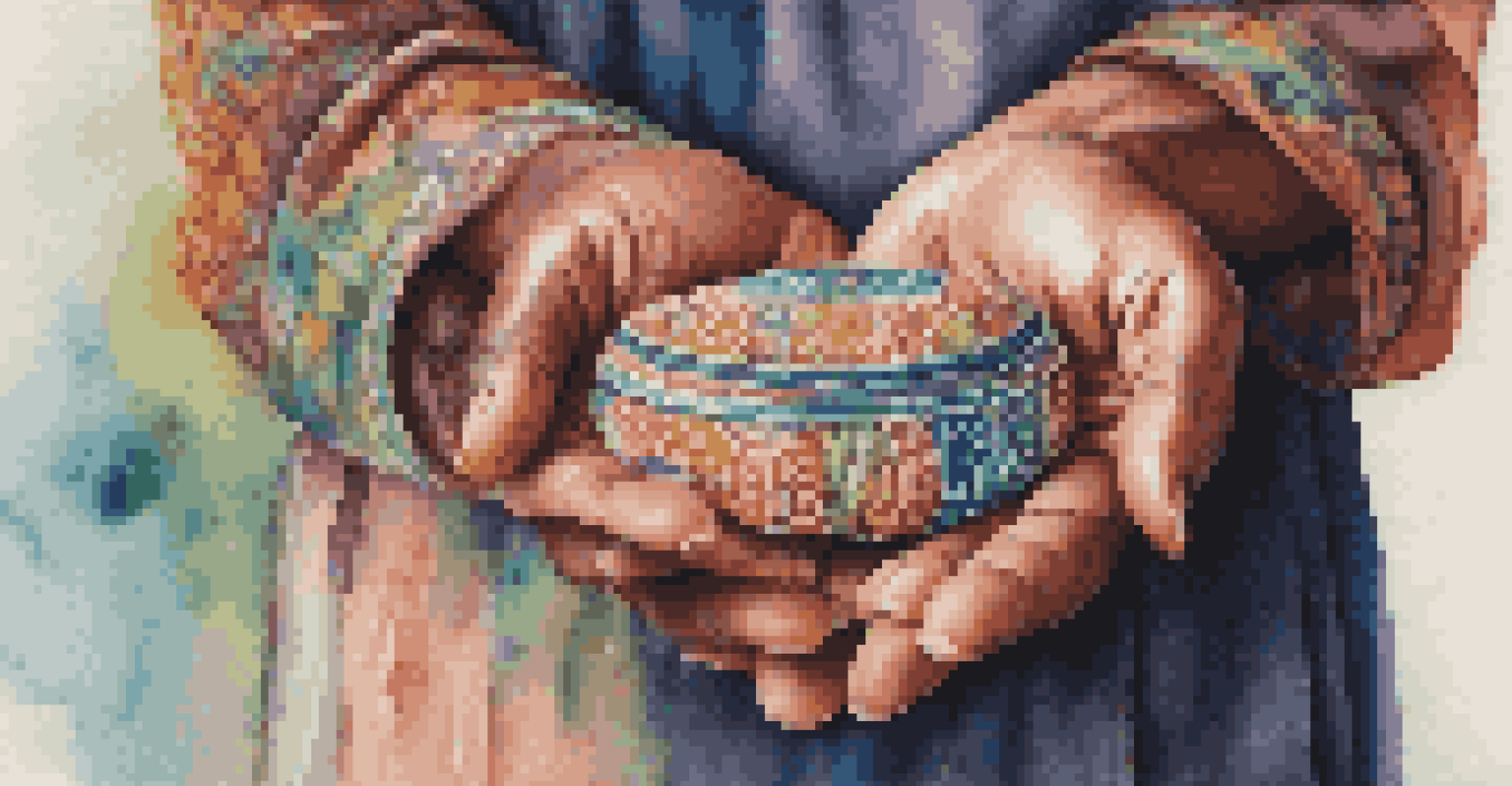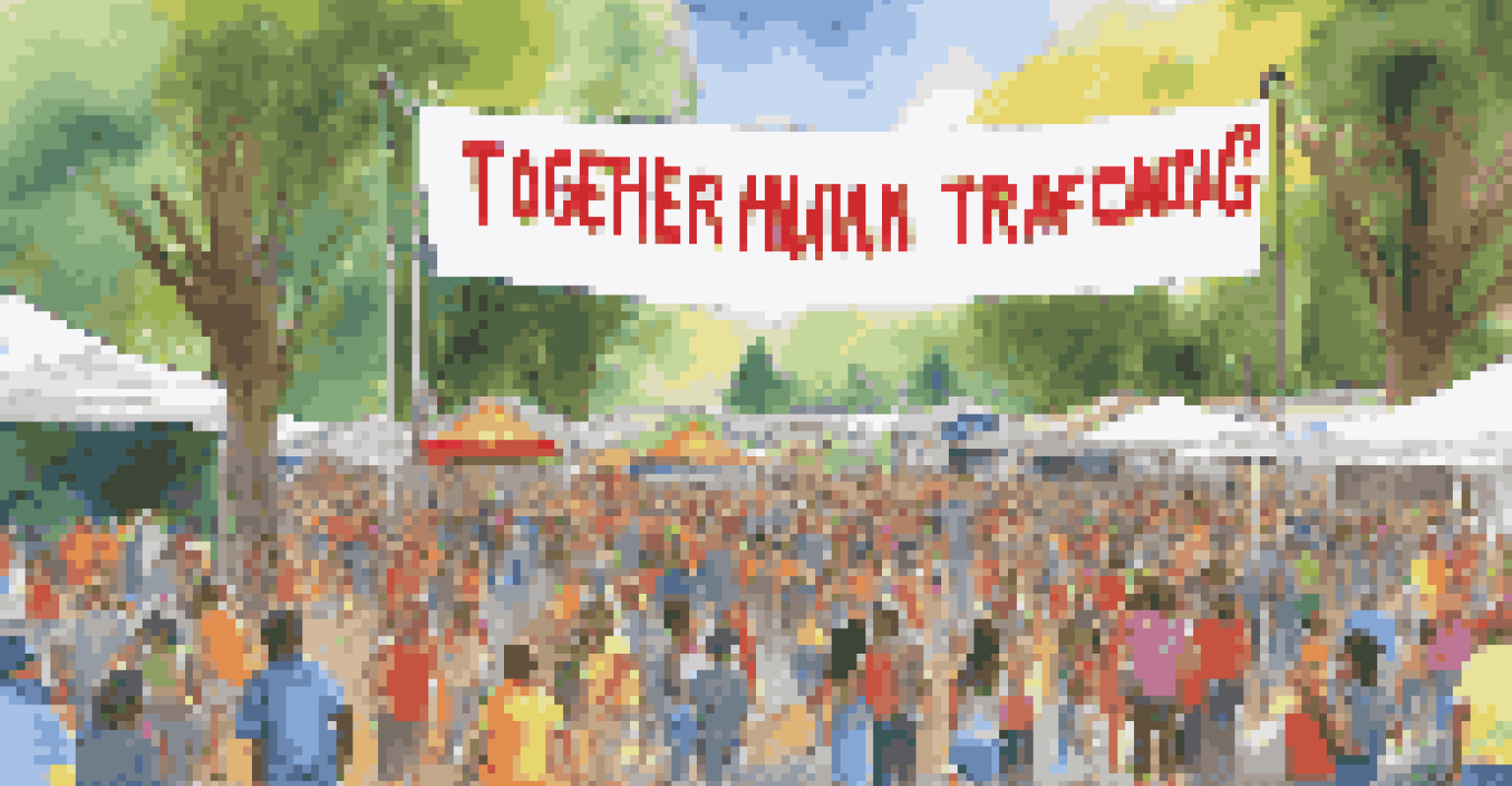Luxury Brands and the Fight Against Human Trafficking

Understanding Human Trafficking: A Global Crisis
Human trafficking is a pervasive issue affecting millions worldwide, often hidden in plain sight. This crime exploits vulnerable individuals, forcing them into labor or sexual exploitation. The severity of this crisis prompts various sectors, including luxury brands, to take a stand against it.
Human trafficking is not just a crime; it is a profound violation of human rights and dignity.
According to the International Labour Organization, about 40 million people are victims of human trafficking globally. This staggering number highlights the urgent need for action and awareness. Luxury brands, with their significant influence, are uniquely positioned to drive change.
Understanding the roots of human trafficking, including poverty and lack of education, is crucial. By addressing these underlying issues, luxury brands can contribute to long-term solutions while elevating their corporate social responsibility.
The Role of Luxury Brands in Social Responsibility
Luxury brands are increasingly recognizing their responsibility to contribute to social causes. By leveraging their substantial resources, these brands can create awareness and initiate impactful programs. Their involvement in combating human trafficking not only enhances their brand image but also aligns with consumer values.

For instance, brands like Gucci have partnered with organizations dedicated to fighting human trafficking, showcasing their commitment to the cause. Such collaborations amplify the message that luxury can coexist with compassion. This shift reflects a growing trend where consumers prefer brands that stand for ethical practices.
Luxury Brands Tackle Human Trafficking
Luxury brands are increasingly leveraging their influence and resources to combat human trafficking, aligning with consumer values for social responsibility.
Moreover, luxury brands can influence their supply chains, ensuring that their products are free from forced labor. By promoting transparency and ethical sourcing, they set a precedent for other industries to follow, highlighting the power of corporate responsibility.
Collaborations with Nonprofits and NGOs
Many luxury brands are partnering with nonprofits and NGOs to combat human trafficking effectively. These collaborations enable brands to leverage expertise and resources, creating more substantial impacts. Working hand-in-hand with organizations focused on prevention and rehabilitation amplifies their efforts.
The greatness of a nation and its moral progress can be judged by the way its animals are treated.
For example, the partnership between Burberry and the charity 'Stop the Traffik' has raised awareness and funds to combat trafficking. Such initiatives empower local communities and provide essential support to victims. Through these alliances, luxury brands play a crucial role in creating sustainable change.
These collaborations often include training programs, financial donations, and awareness campaigns. By aligning their marketing strategies with these causes, luxury brands can educate consumers and mobilize them to take action, further bridging the gap between luxury and social good.
Innovative Campaigns Raising Awareness
Innovative marketing campaigns are essential for raising awareness about human trafficking. Luxury brands are using their platforms to educate consumers on this critical issue. By creatively integrating the message into their branding, they can reach wider audiences.
For instance, some brands have launched campaigns featuring stories of survivors, humanizing the issue and fostering empathy. These narratives resonate with consumers and encourage them to support anti-trafficking initiatives. Such campaigns not only highlight the problem but also showcase the brand's commitment to making a difference.
Collaborations Drive Impactful Change
Partnerships between luxury brands and nonprofits enhance efforts against human trafficking by utilizing shared expertise and resources.
Social media plays a significant role in these campaigns, allowing brands to engage with consumers directly. By encouraging followers to share information and take action, luxury brands can harness the power of community to spread awareness and promote change.
Sustainable Practices: A Step Towards Change
Luxury brands are increasingly adopting sustainable practices as part of their fight against human trafficking. By ensuring ethical sourcing and production processes, they reduce the risk of exploitation within their supply chains. This commitment to sustainability is a crucial step in creating a fairer industry.
For example, brands like Stella McCartney prioritize eco-friendly materials and ethical labor practices, setting a standard for others to follow. By investing in sustainable practices, these brands demonstrate that luxury and responsibility can go hand in hand. This approach not only helps combat trafficking but also appeals to conscious consumers.
Moreover, sustainable practices often lead to better working conditions for all workers involved. By fostering an environment of respect and dignity, luxury brands contribute to breaking the cycle of poverty that often leads to trafficking.
Empowering Victims through Rehabilitation Programs
Rehabilitation programs are essential for helping trafficking survivors reintegrate into society. Luxury brands are increasingly supporting these initiatives, providing funding and resources for effective programs. By focusing on empowerment, they help victims regain control over their lives.
Programs that offer vocational training and mental health support are particularly impactful. Brands can play a vital role by sponsoring these initiatives, ensuring that survivors have the tools they need to rebuild their futures. This support not only aids individual recovery but also strengthens communities.
Sustainable Practices Foster Responsibility
By adopting sustainable practices, luxury brands not only mitigate exploitation risks but also appeal to conscious consumers seeking ethical products.
Additionally, luxury brands can provide job opportunities for survivors within their organizations. By offering stable employment, they not only contribute to healing but also challenge stereotypes about trafficking victims, fostering a more inclusive workforce.
The Road Ahead: Challenges and Opportunities
While luxury brands have made significant strides in combating human trafficking, challenges remain. The complexity of the issue requires ongoing commitment and innovative solutions. As awareness grows, luxury brands must continue to adapt and evolve their strategies to make a lasting impact.
One of the key challenges is ensuring that all aspects of the supply chain are free from exploitation. This requires transparency and accountability at every level. Luxury brands must actively monitor their supply chains and collaborate with stakeholders to address any issues that arise.

Despite these challenges, there are abundant opportunities for luxury brands to lead the charge against human trafficking. By continuing to advocate for change, innovate their practices, and engage consumers, they can help create a future where human trafficking is eliminated.